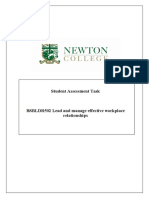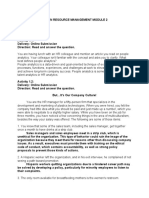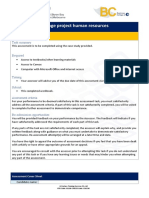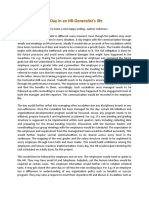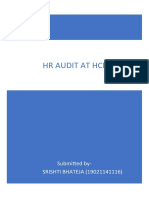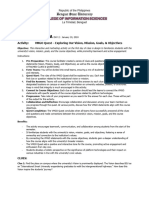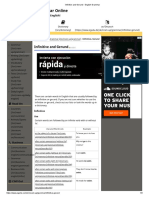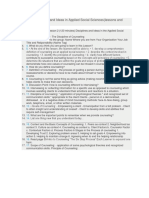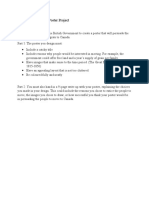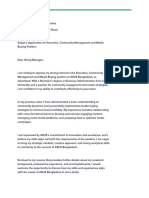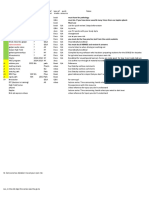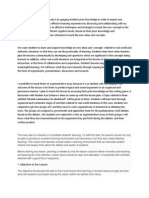0% found this document useful (0 votes)
58 views18 pagesm4 Assignment Updated Audit Checklist
The document outlines an audit checklist and action plans for two areas - management and hiring - within an organization's human resources department. For management, the plan examines communication processes like department meetings and employee surveys to ensure open communication. For hiring, the plan reviews all job descriptions to ensure they accurately reflect employee roles and duties. Multi-step processes and tasks with assigned responsibilities and deadlines are provided to guide the reviews in both areas.
Uploaded by
api-707908936Copyright
© © All Rights Reserved
We take content rights seriously. If you suspect this is your content, claim it here.
Available Formats
Download as PDF, TXT or read online on Scribd
0% found this document useful (0 votes)
58 views18 pagesm4 Assignment Updated Audit Checklist
The document outlines an audit checklist and action plans for two areas - management and hiring - within an organization's human resources department. For management, the plan examines communication processes like department meetings and employee surveys to ensure open communication. For hiring, the plan reviews all job descriptions to ensure they accurately reflect employee roles and duties. Multi-step processes and tasks with assigned responsibilities and deadlines are provided to guide the reviews in both areas.
Uploaded by
api-707908936Copyright
© © All Rights Reserved
We take content rights seriously. If you suspect this is your content, claim it here.
Available Formats
Download as PDF, TXT or read online on Scribd
/ 18






